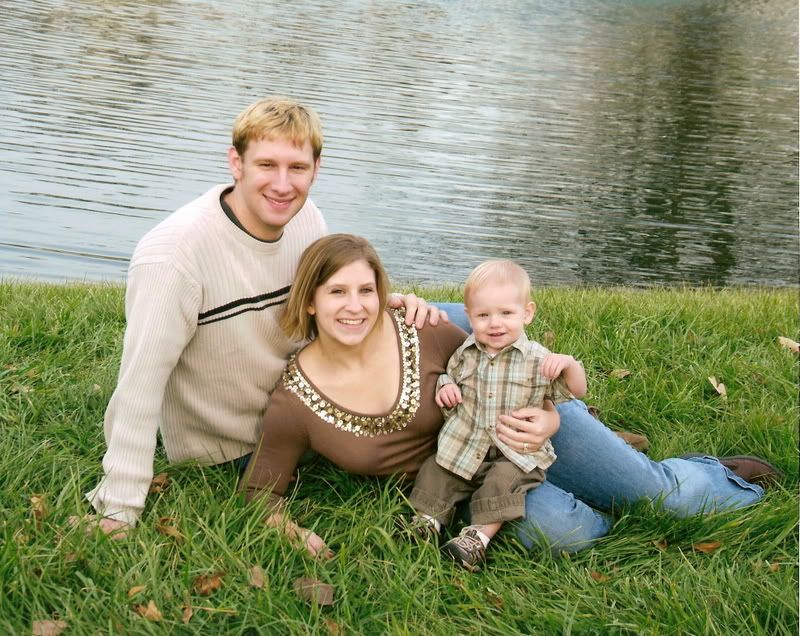(written by Lindsay, of course)
We have been back in Seattle for nearly a month now, living in temporary housing in an apartment complex close to Microsoft. Everything so far is going well and according to plan - we've found a house, Tom is working hard at his new job, Cavan has started afternoon preschool, and me....I've become a stay-at-home-mom-driver-of-an-SUV. With Cavan's new preschool a good half hour from our apartment (though it will be 3 minutes from our new house) I am literally out and about all afternoon, running errands with Devon, going for walks, basically killing time from 12:30 when I drop him off until 3:00 when I pick him up. Back in Denmark, when I envisioned my return to the States, I anticipated much less driving than we are actually doing now. Hopefully that will change once we move and are reunited with our bikes and trailer again. Then, of course, it will start raining and getting dark at 5:00, so maybe we will opt for the comfort of the SUV after all....
I've been feeling the need to blog today, because I think I have finally reached a moment of clarity in my transition from being an "American-Living-In-Denmark" to a "More-Danish-Than-Your-Average-American-American-Living-In-The-U.S." This entry, my friends, is all about identity, and how contextual it is. (I want to say 'situated' but that would just be me using my educational jargon).
In choosing to live in another country, and to learn another language more specifically, you are choosing, in a sense, to begin a new life, to open a new door and walk through it. Many people travel and "eavesdrop" in a sense on the languages and cultures of others, but to really put yourself into that culture and language requires the creation of a new persona, a new you. When you choose to be brave and do this, you must quickly come to terms with the fact that you will become a stuttering, sputtering, incomprehensible idiot (okay, that's a bit harsh, but that's often how it feels). You mispronounce your own street name, you respond inappropriately when someone gives you a compliment, you watch to see how other people are behaving in social situations so that you don't look like a bafoon eating your pizza or your burger with your hands. So in these early days, the identity of "bungler" is born.
Later comes confidence, routine, assimilation. The daily life of bungling through a new language and culture slowly gives way to an identity of one who perserveres. The wins begin to edge out the losses. The successes overshadow the failures. People stop treating you so much like a foreigner, and converse with you as they would any other person. You become a "master foreigner".
So here is where the trouble begins again. You move back to your own country. Suddenly you are walking down the street (or driving your SUV) just like everyone else again. There are no external markings to show where you have been, who you have become, or what you have gained. You have mastered being a foreigner, but suddenly that job title has no meaning. Even for yourself, the persona you have created starts to slip away. Your hard-earned identity no longer has a context. You must pick up some of the pieces of who you once used to be, before you ever moved, and try to start forging some new ones.
For me, there has been less culture shock in coming back to the States, as there has been this "life shock" as I like to now call it. It doesn't help that at the same time that I'm floating between two countries, I am also floating between graduate school and a career. The experience has been so jarring for me, that I quickly sought out a Danish-speaking playgroup as soon as we got to Seattle. I have met twice now with some Danish mothers and their kids. And today it makes sense to me why I felt so compelled to join this group - to have a context to validate the Danish-speaking-Lindsay identity that I have been crafting over the past 2 1/2 years. I say that I want to keep up the language (and I do) but I think I am also afraid that that part of who I am will disappear if I don't actively pursue it.
I worry about this for Cavan too, as he became a user of language and aware of himself as a person in a bilingual context. It both surprised and saddened me on Wednesday during our playgroup when I found that after just 6 weeks of being out of Denmark, Cavan could not find the voice to speak to anyone in Danish. Of course he understands still (and maybe he's just temporarily feeling weird about speaking Danish with strangers) but his confidence was gone. He, like everyone else who moves to another country with a different culture and language, is adapting himself to the present context. As a child, however, he is reacting in a less nostalgic, more pragmatic manner. The friendly and nurturing Danish of his teachers and peers at day care are gone. The familiar and powerful English of his family life is now all around him. As he told me himself when I tried to speak Danish to him one day, "I'm not a day care boy anymore. I'm a preschool boy." Context. That identity is no longer relevant for him.
He and I are taking different paths in our return to the States, but these experiences are shaped by our surroundings, and how we are choosing to identify ourselves in relation to them. I hope that by continuing contact with Danish speakers here in Seattle we can preserve at least some part of who we were...are...becoming.
Friday, October 02, 2009
Subscribe to:
Comments (Atom)
